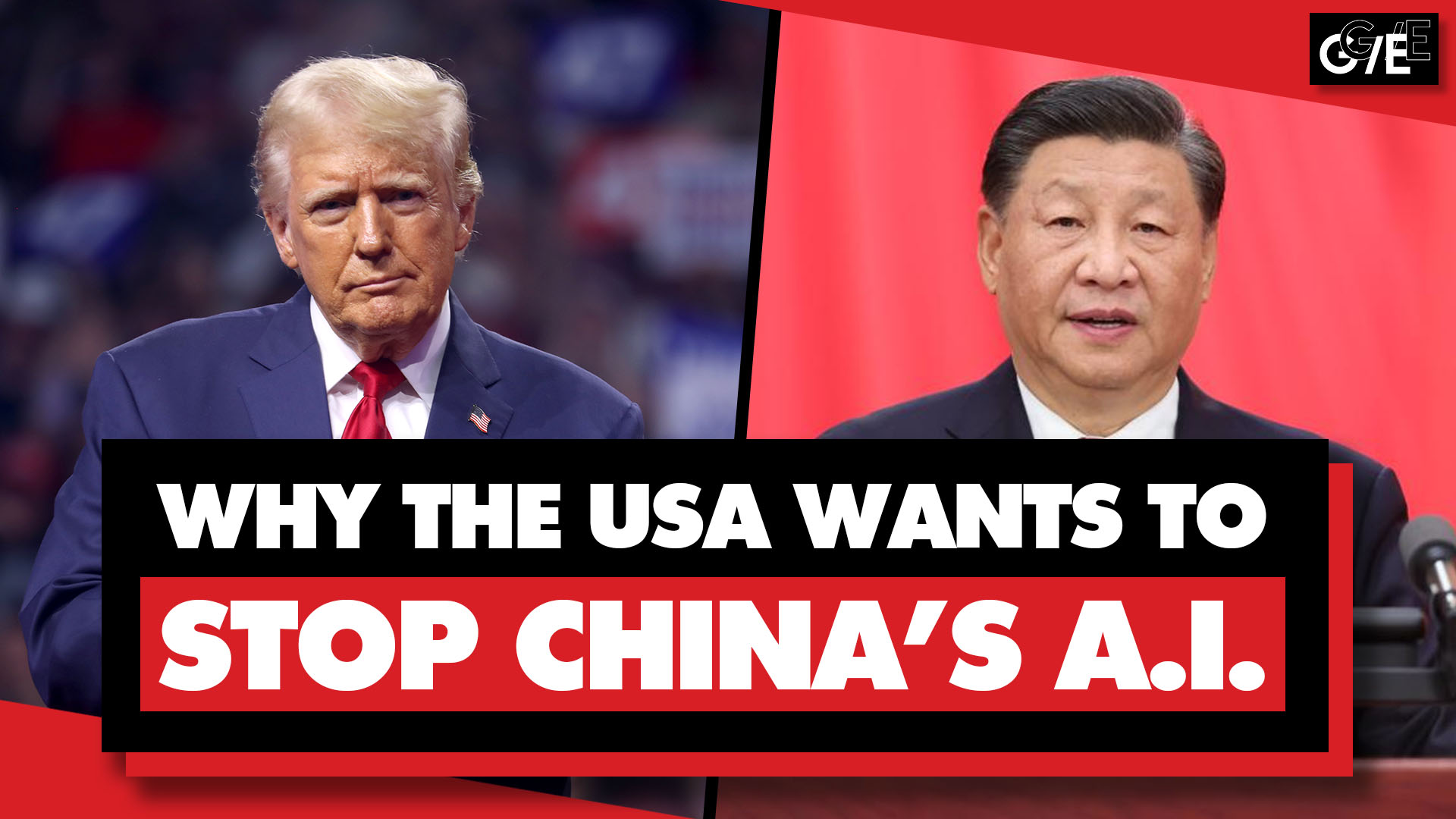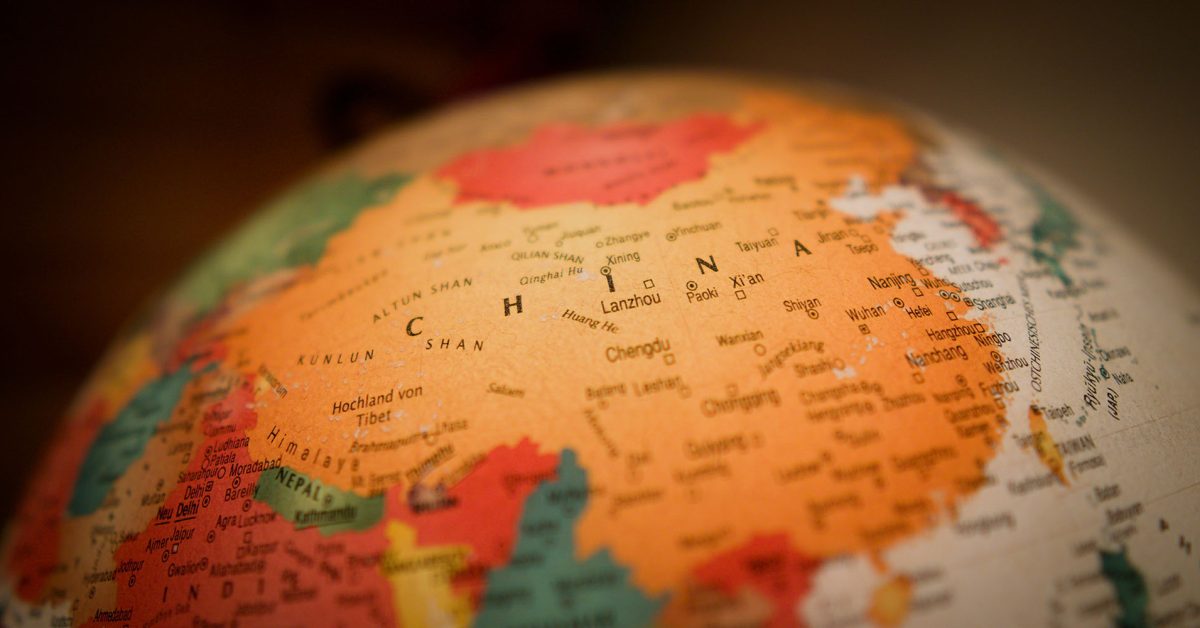The CEO of Anthropic, an AI company backed by Amazon and Google, argued that the US government must impose heavy restrictions on China in order to maintain a monopoly on artificial intelligence technology.
If the US government can block China from getting advanced semiconductors, we will “live in a unipolar world, where only the US and its allies have these models”, wrote Anthropic CEO Dario Amodei.
Calling for more aggressive sanctions on China, Amodei warned, “Well-enforced export controls are the only thing that can prevent China from getting millions of chips, and are therefore the most important determinant of whether we end up in a unipolar or bipolar world”.
This mindset, which is common in Silicon Valley, explains why US Big Tech corporations have been so afraid of emerging competitors in China.
It was widely assumed that capitalism is based on competition. But powerful US tech billionaire Peter Thiel argues the opposite: “Actually, capitalism and competition are opposites”, Thiel wrote in the Wall Street Journal.
“Competition is for losers”, stated Thiel, who is a close ally and funder of US President Donald Trump.
Thiel insisted that US tech companies should “look to build a monopoly”, because, as he put it, “Monopoly is the condition of every successful business”.
China’s DeepSeek challenges US Big Tech monopoly
The Chinese company DeepSeek has shaken up the global debate about artificial intelligence.
It was taken for granted for years that the United States was leading the world in the development of AI, and that US Big Tech corporations based in silicon Valley would inevitably dominate the industry.
Seemingly out of nowhere, however, this small Chinese company published an AI model that is even better than those created by the leading US company OpenAI, which is half owned by Microsoft.
What was even more incredible was that the DeepSeek model requires a tiny fraction of the computing power and energy used by US AI models, and the company reportedly developed its model for just around US $6 million.
Meanwhile, US companies are pouring hundreds of billions of dollars per year into AI capital expenditure.
The cherry on top was that DeepSeek released its R-1 model with an open source license, making it free for anyone in the world to download and run on their computer at home.
It is not an exaggeration to say that this was completely ground breaking.
US government seeks to restrict Chinese technology
The US government has sought to protect Silicon Valley monopolies by restricting Chinese competition.
When DeepSeek went viral in the last week of January 2024, quickly establishing itself as the most popular app in the United States, the government promptly declared it to be a threat to “national security”.
The US Navy immediately banned the use of DeepSeek, claiming that it has “security and ethical concerns” — despite the fact that its models are open source.
Washington also sought to tighten its restrictions on China.
The US economic war on China started in Trump’s first term, which launched a trade war and imposed sanctions and tariffs. It was then significantly expanded by the Joe Biden administration, which put export restrictions to prevent China from getting access to high-end chips that were assumed to be needed to train artificial intelligence models.
In response to DeepSeek’s success, the US government threatened other countries, especially Singapore, warning them that, if they sell semiconductors to China, Washington will impose heavy sanctions and tariffs.
The US commerce secretary in the Joe Biden administration, Gina Raimondo, admitted in 2021 that Washington’s goal is “to slow down China’s rate of innovation“.
However, what the US government is learning is that every time it tries to ban one Chinese technology, another one becomes very popular.
The US government tried to ban TikTok, pressuring the popular app’s Chinese parent company ByteDance to sell it to a US Big Tech monopoly, but what happened? Many Americans instead moved over to another Chinese app called RedNote – which is ironically named Xiaohongshu, or “Little Red Book” in Chinese.
This was mere weeks before DeepSeek overtook ChatGPT as the most popular app in the United States.
DeepSeek is just the beginning. US venture capitalists have warned that engineers in China are developing at least “10 top tier models, all trained from scratch”. Major Chinese companies like Tencent, Alibaba, and ByteDance are involved, as well as many lesser-known names.
US Senate discusses “stealing” China’s engineers and banning its apps
In Washington, the US government is discussing how it can ban popular Chinese apps and “steal [China’s] best engineers”.
These proposals were raised at a hearing of the Senate Foreign Relations Committee in Washington on 30 January, titled “The Malign Influence of the People’s Republic of China at Home and Abroad“.
“Let’s steal their best engineers”, stated Melanie Hart, a former State Department official who was invited to give testimony.
“China’s national engineers developed the DeepSeek AI model that surprised the world this week”, she continued. “You know, we’d be better off if the engineers behind that were working here in the US, and US universities, and US companies”.
Hart is an anti-China activist who previously oversaw the State Department’s semiconductor strategy. She is now the director of the Global China Hub at the Atlantic Council, a hawkish Washington, DC-based think tank funded by the US government, NATO, and weapons corporations.
Another China hawk invited to give testimony in the Senate Foreign Relations Committee hearing was Peter Mattis, a CIA veteran who serves as president of the Jamestown Foundation, a neoconservative think tank that is closely linked to the CIA. Mattis previously worked for the US House of Representatives Select Committee on the Strategic Competition between the United States and the Chinese Communist Party.
“What should we do about RedNote, and DeepSeek, and other platforms like that?”, asked Senator Pete Ricketts, a pro-Trump Republican from Nebraska.
Mattis proposed that Chinese apps should either be forced to be sold to a US company, or banned.
“I think for those kinds of platforms, you have to adopt the same approach that was applied to TikTok, that it either it is sort of removed from the control or it is no longer available in the app stores”, Mattis said.
“Great, thank you very much, Mr. Mattis”, replied Senator Ricketts in approval.
US Big Tech billionaires say “competition is for losers”
China’s rapid technological advances have scared a lot of Big Tech corporations in the United States, because the reality is they don’t want competition.
This once was admitted openly by the US tech billionaire Peter Thiel, in his September 2014 Wall Street Journal article “Competition Is for Losers”.
“Capitalism is premised on the accumulation of capital, but under perfect competition, all profits get competed away”, Thiel complained.
“Only one thing can allow a business to transcend the daily brute struggle for survival: monopoly profits”, he wrote.
“Monopoly is the condition of every successful business”, Thiel declared, adding, “All happy companies are different: Each one earns a monopoly by solving a unique problem. All failed companies are the same: They failed to escape competition”.
After publishing that column, Thiel was invited to give a lecture with the same title at Stanford University, in a computer science course in October 2014.
Thiel opened his Stanford talk stating:
I have a single idée fixe that I’m completely obsessed with, on the business side, which is that, if you’re starting a company, if you’re the founder, entrepreneur, starting a company, you always want to aim for monopoly, and, you want to always avoid competition. And so, hence, competition is for losers – something we’ll be talking about today.

OpenAI CEO Sam Atlman invited tech billionaire Peter Thiel to Stanford to speak in defense of monopolies and against competition in 2014.
The man who invited Thiel to speak at Stanford in defense of monopolies was fellow Silicon Valley tech billionaire Sam Altman, the CEO of OpenAI.
OpenAI has lobbied the US government to take more action to cut off competition from Chinese companies like DeepSeek.
On 21 January 2025, just a day after returning to office, Trump invited Altman to the White House to announce the US government-backed “Stargate Project”, pledging $500 billion in investment related to AI.
Trump and Altman were joined by fellow billionaires Larry Ellison, the executive chairman of Oracle, and Masayoshi Son of SoftBank.

US President Donald Trump and billionaires Sam Altman, Larry Ellison, and Masayoshi Son at the White House on 21 January 2025
Peter Thiel says capitalism is more important than democracy
Thiel’s argument that “capitalism and competition are opposites” was by no means meant as a criticism of capitalism. On the contrary, Thiel is an avowed defender of capitalism, and a self-declared “libertarian”.
In 2009, Thiel published an article explicitly arguing against democracy. It was published by the libertarian think tank the Cato Institute, which is funded by right-wing billionaires and a Who’s Who of large US corporations.
“I no longer believe that freedom and democracy are compatible”, Thiel wrote.
“The 1920s were the last decade in American history during which one could be genuinely optimistic about politics”, he argued, adding, “Since 1920, the vast increase in welfare beneficiaries and the extension of the franchise to women — two constituencies that are notoriously tough for libertarians — have rendered the notion of ‘capitalist democracy’ into an oxymoron”.
In short, Thiel recognized that capitalism and democracy cannot simultaneously coexist – and as a billionaire oligarch, he naturally believes that capitalism is more important.
The USA is an oligarchy
Although he has extreme right-wing views, Thiel is by no means a fringe billionaire. He is one of the most powerful people in Silicon Valley.
In fact, Thiel is closely linked to US President Donald Trump, and he has funded many right-wing Republican politicians, including Trump himself. Vice President JD Vance previously worked for Thiel.
Trump has filled his administration with at least 13 billionaires, and has pledged to continue cutting taxes on them and their companies.
Trump also showed the world how the United States is an oligarchy when he invited the richest billionaires on the planet to sit with his cabinet members at his inauguration in Washington on 20 January.
Elon Musk, the CEO of Tesla and SpaceX, who is now the world’s richest man, has an office in Trump’s White House. He was joined at the inauguration by Mark Zuckerberg, the CEO of Meta; Jeff Bezos, the founder of Amazon; Sundar Pichai, the CEO of Google and Alphabet; and Tim Cook, the CEO of Apple.
All of these Big Tech oligarchs earned their hundreds of billions of dollars of wealth by establishing monopolies.
US President Donald Trump invited the world’s richest billionaire oligarchs to sit at the center of his inauguration.
Elon Musk, Jeff Bezos, Mark Zuckerberg, & Google CEO Sundar Pichai symbolically sat with Trump’s cabinet picks.
A dozen billionaires will be in the Trump admin. pic.twitter.com/9CHzpmFAEU
— Ben Norton (@BenjaminNorton) January 20, 2025
Anthropic CEO Dario Amodei says US must block China’s AI progress to maintain “unipolar world”
Another US tech CEO, Dario Amodei, published an article in the Wall Street Journal in January asking Donald Trump to put further restrictions on Chinese competitors so the United States can maintain an AI monopoly.
Amodei wrote this article with co-author Matt Pottinger, a neoconservative China hawk and former US military intelligence officer who served as the deputy national security adviser to Trump in his first administration.
Like OpenAI, which is half owned by Microsoft, Anthropic portrays itself as a plucky “startup“, but its main investors are Big Tech monopolies Amazon and Google.

In his article in the Wall Street Journal, Amodei complained that “China is trying to catch up” in AI. He argued that “the U.S. must lead the world in artificial intelligence to preserve national security”.
Having a monopoly on AI will “establish a historic advantage for the U.S. and the free world”, he wrote, because “AI will likely become the most powerful and strategic technology in history”.
Controlling AI “could also extend American military pre-eminence”, Amodei wrote. But if the US doesn’t have a monopoly, he warned, “another nation—most likely China—could surpass us economically and militarily”.
To prevent China from competing, Amodei and his neoconservative co-author Pottinger asked Trump to impose even more aggressive export controls, including government tracking of AI hardware exports.
In a follow-up article published a few weeks later at his personal website, Amodei argued that the rapid progress being made by Chinese AI companies like DeepSeek makes “export control policies even more existentially important“.
China must be blocked from getting “millions of chips”, Amodei wrote, because, “If they can, we’ll live in a bipolar world, where both the US and China have powerful AI models that will cause extremely rapid advances in science and technology”.
“If China can’t get millions of chips, we’ll (at least temporarily) live in a unipolar world, where only the US and its allies have these models”, he warned. “Thus, in this world, the US and its allies might take a commanding and long-lasting lead on the global stage”.
“Well-enforced export controls are the only thing that can prevent China from getting millions of chips, and are therefore the most important determinant of whether we end up in a unipolar or bipolar world”, he cautioned.


